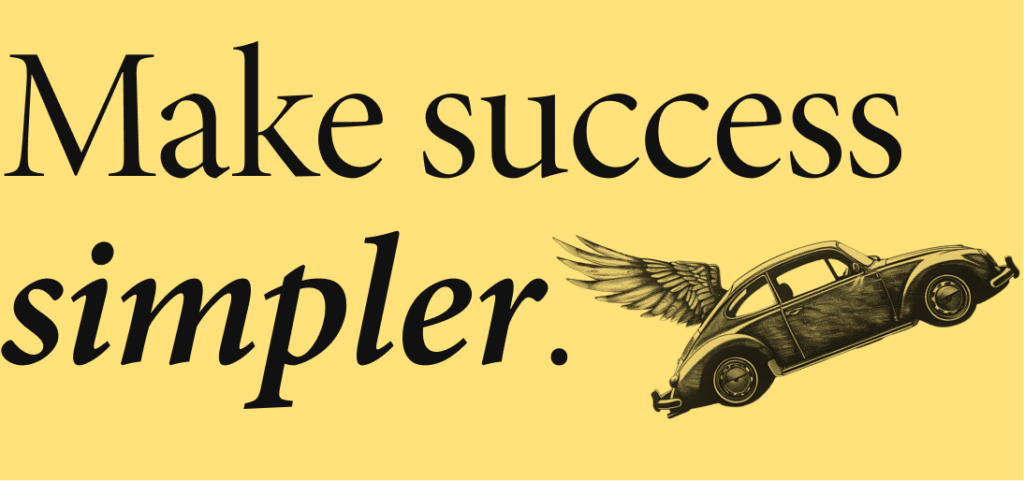Welcome to One Thing Better. Each week, the editor in chief of Entrepreneur magazine (that’s me) shares one way to be happier and more effective at work — and build a career or company you love.
Today’s one thing: Getting things right.
That one thing, better: Getting things right and wrong.

You want to be perfect — but you’re not.
You want your decisions to be correct. Your interactions to go smoothly. You want people to trust you, because they know you’ll always deliver.
That’s why you beat yourself up over any mistake.
When you screw up one thing, you feel like you screwed up everything — because it undercut all the hard work, and all the good decisions, that had come before.
But I have a different way of thinking about this:
What if you were supposed to screw up?
To appreciate why, let’s take a trip to Google’s fabled innovation lab — where we’ll find a framework that changes everything.
A better way to think about problems.
I was recently listening to the podcast StarTalk, and the guest was a guy named Matt Ginsberg. He’s an engineer at Google X, the company’s “moonshot factory,” and he’d come on to talk about AI.
“How much we should trust AI?” the hosts asked.
Matt’s answer was more profound than I expected.
He said the world breaks down into two kinds of problems: There are 51/49 problems and 100/0 problems.
Then he explained:
“In 51/49 problems, being 51% right is good. So if you’re playing the stock market, and you can accurately pick stocks that are going up 51% of the time, you’re about to be really rich.
“Then you have 100/0 problems — where 51% is not good enough, and even 99% is not good enough. If you’re trying to shut down a nuclear reactor in an emergency, you really need the 100% answer.”
His point was: Machine-learning systems are great at 51/49 problems, but not yet trustworthy with 100/0 problems.
But as I listened to this, I thought: Whoa, whoa, whoa — this applies to us all, in every part of our lives!
Why? Because…
Most problems are 51/49 problems.
Think of the last three times you messed up, and either disappointed yourself or someone else.
Here, I’ll list mine:
- I’m advising a startup founder who needed help on deadline — but it slipped my mind and I left him hanging.
- I waited way too long to book holiday flights for my family, and the cost went up nearly $1,000 — even though my (understandably annoyed) wife repeatedly asked me to do it earlier.
- I let something slip in a conversation with a work friend, and immediately realized I should have kept it to myself.
I felt bad about each of those. I want to be reliable, responsive, and trustworthy — and if anyone’s keeping track, those moments dent my record of success. I could spend a lot of time ruminating on them.
But you know what? I also realized: Each of these are 51/49 problems.
The startup advising? I’ve been more helpful than unhelpful.
Family needs? I’m usually on top of it.
The conversation? I’ve had many better talks with that person.
This is the beauty of the 51/49 and 100/0 concept: It puts every outcome in a broader context — where our actions today are weighed against our overall efforts.
Every so often, life demands a perfect reaction. We face 100/0 problems, where failure can cause irrevocable harm.
But ask yourself:
How many of your problems are really 100/0 problems?
Probably very few.
Everything is rarely on the line. One screw-up does not usually end everything. Most of our problems are 51/49 problems. There’s room for error.
For example, my wife and I understand: We cannot be perfect with each other. We’ll get things wrong. For this reason, our marriage does not rely upon perfection — because if that’s the bar, it’s unreachable.
We have permission to mess up from time to time, in almost all aspects of our lives. It’s baked into our mutual understanding. Life is a game of 51/49.
Now, let’s not get too literal.

I know what someone’s thinking right now: “If you’re only good 51% of the time, that’s bad.”
True! I mean, let’s not forget — this concept was created by an engineer. If I only make my wife happy 51% of the time, that might be a statistical success… but it is a human failure.
So, fine: Most things in our life are not literally actually a 51/49 problem. Maybe they’re an 80/20 problem. Or a 90/10 problem. I don’t know. Pick your number.
But the point is this: Don’t treat 51/49 problems like 100/0 problems. You have permission to be wrong sometimes.
And when you are wrong, understand that the person you wronged is not looking for perfection anyway. They’re just looking for faith that you’re still a good statistical bet — that you’re always striving to be more right than wrong. More 51 than 49.
That’s why, when I screw up, I tell someone my plan to improve. If I make the wrong call at work, for example, I tell people what I learned and how I’ll apply it.
Then, instead of lingering on the loss, I try to refocus on getting the next win. After all, in a life of 51/49 problems, the goal is to be more right than wrong. Which means the more problems you face, the more chances you have of getting them right.
That’s how to do one thing better.
